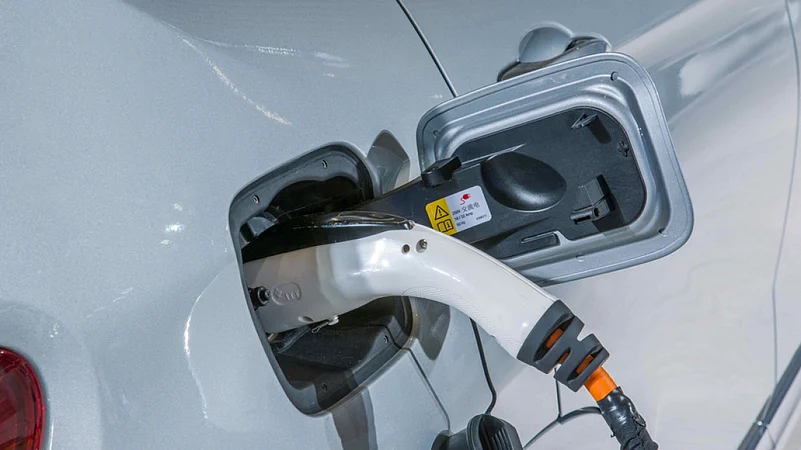Banks and non-banking financial companies (NBFCs) in India have the potential to achieve an electric vehicle financing market size of Rs 40,000 crore by 2025 and Rs 3.7 lakh crore by 2030, according to a report released on Friday.
Government think-tank Niti Aayog and the Rocky Mountain Institute (RMI) India in a joint report, titled 'Banking on Electric Vehicles in India', outlined the importance of priority sector recognition for retail lending in electric mobility ecosystem.
"Banks and non-banking financial companies (NBFCs) in India have the potential to achieve an electric vehicle (EV) financing market size of Rs 40,000 crore ($5 billion) by 2025 and Rs 3.7 lakh crore ($50 billion) by 2030.
"However, retail finance for EVs has been slow to pick up," it said.
The report also stressed the need for the inclusion of lending by banks and NBFCs for buying EVs in the Reserve Bank of India's (RBI) priority-sector lending (PSL) guidelines.
Priority sector lending aims to expand financial access and support employment opportunities in India.
To meet these goals, the report suggested that the RBI might consider various EV segments and use cases based on five parameters -- socio-economic potential, livelihood generation potential, scalability, techno-economic viability, and stakeholder acceptability.
It indicated that electric two-wheelers, three-wheelers and commercial four-wheelers can be early segments to prioritise under PSL.
Moving forward, the engagement of other ministries and industry stakeholders will be important to ensure that the guidelines designed can effectively enhance EV investment in India, the report added.
To maximise the impact of the inclusion of EVs, the report also recommended a clear sub-target and a penalty mechanism for the priority sector lending to renewable energy and EVs.
Furthermore, it suggested recognition of EVs as an infrastructure sub-sector by the Ministry of Finance and the incorporation of EVs as a separate reporting category under the RBI.
Multipronged solutions such as these are needed not only for EV penetration and businesses but also for the financial sector and India's 2070 net-zero target, the report said.
Commenting on the report, Niti Aayog CEO Amitabh Kant said financial institutions have an important role to play in accelerating the adoption of EVs in India and supporting the decarbonisation of road transport.































